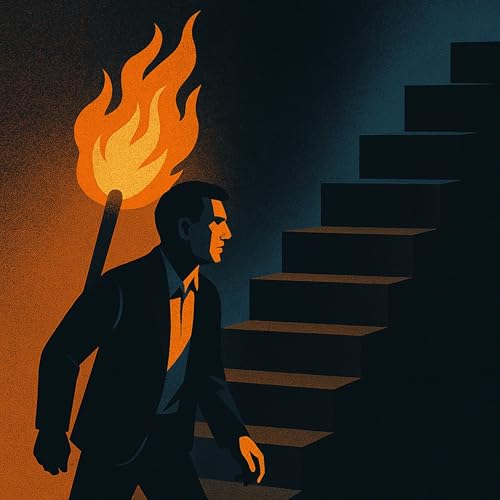
Ugly Words, Dangerous Fires
Échec de l'ajout au panier.
Échec de l'ajout à la liste d'envies.
Échec de la suppression de la liste d’envies.
Échec du suivi du balado
Ne plus suivre le balado a échoué
-
Narrateur(s):
-
Auteur(s):
À propos de cet audio
Why protecting even offensive words is the only way to prevent violence
By Chris Abraham for Substack
Every generation rediscovers an old lesson the hard way: words are not bullets, but if you confuse them long enough, bullets eventually appear.
Lately I’ve been struck by how quickly our civic conversations move from irritation to punishment. A clumsy remark or ugly slogan goes viral; the mob mobilizes; firings and cancellations follow. It’s tempting to say “well, that’s accountability,” but the speed and severity of these reactions tell a different story. What we are really doing is rehearsing a very old drama: escalation without a ceiling.
Think about Sarajevo, 1914. A teenager named Gavrilo Princip fires a pistol at Archduke Franz Ferdinand. One act of political violence sets off treaties, obligations, and mobilizations. Within weeks, a continent is on fire. The war that followed didn’t solve the problem — the punitive Treaty of Versailles created conditions for something even worse. What began as one shot became decades of blood.
In our own time, the weapons are reputations, jobs, and platforms. The principle is the same. A careless post spirals into professional ruin. A mob decision substitutes for law. The difference between a town that argues and a town that shoots isn’t etiquette — it’s survival. Civilized societies invest in procedures: courts, ballots, deliberation. Mobs invest in immediacy. And immediacy always tempts violence.
I am not blind to the harm of speech. Racist, vile, or threatening words sting. But the constitutional line exists for a reason. U.S. law is clear: speech only loses protection if it incites imminent lawless action. Everything else, however ugly, is permitted. That boundary protects not just bigots but everyone who dissents from the reigning consensus. Without it, majorities punish minorities on impulse.
Cancel culture, whatever name you prefer, is efficient at punishment but poor at persuasion. It does not change minds; it exiles people. It does not reduce resentment; it deepens it. Every mob firing creates martyrs. Every public shaming fertilizes resentment. And resentment, history shows, is a renewable fuel for conflict.
Even in theology, escalation is a central theme. The Gospel’s “go, and sin no more” joins mercy with responsibility. Mercy without limits collapses into indulgence. Punishment without procedure collapses into vengeance. Both errors invite cycles that consume communities.
Revolutions prove this. Marx promised liberation through rupture. Mao promised purification through violence. Che romanticized guerrilla struggle. What followed was not paradise but repression breeding new radicals, one cycle after another. The dueling codes of earlier centuries made the same point: treat words as violence, and violence answers back.
We flatter ourselves that the modern age is different because our weapons are digital. But doxxing, mass reporting, and professional exile are simply new swords. The old instinct is unchanged.
There is also a dangerous illusion that pauses equal peace. Versailles looked like peace; it was only a ceasefire. Contemporary ceasefires often work the same way: an interval to rearm. Punishment without reconciliation buys time, not resolution.
So what should we do? Protect the square. Keep the civic forum open even to speech you despise. Reserve punishments for true threats, not for dissent. Train institutions to resist the adrenaline of the mob. Encourage citizens to answer ugliness with argument, not annihilation.
This isn’t naivety. It’s strategy. If you want fewer bullets, you must tolerate more words. Ugly words, even dangerous-sounding words, are less corrosive than the torches we light to silence them.
History has already taught us what happens when we confuse offense with violence and treat every slight as existential. Once the crowd is chanting and the torches are lit, the path back down the ladder is hard to find.


